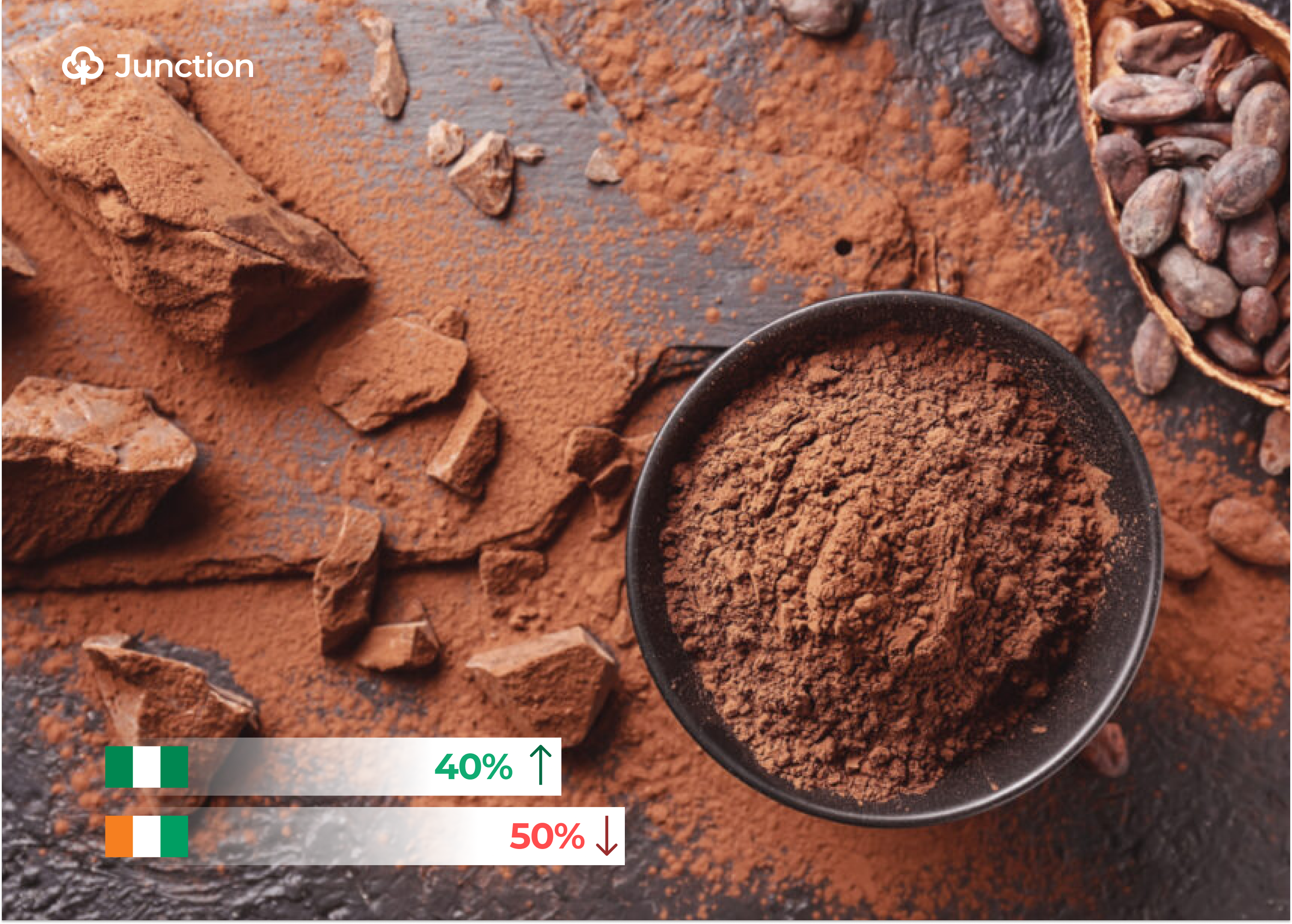News in Brief:
– Climate change is predicted to drastically alter cocoa production in West Africa by 2026, with Nigeria experiencing a 40% increase and Ivory Coast a 50% decrease.
– This change is potentially driving deforestation and impacting global chocolate prices, emphasising the urgent need for sustainable practices, adaptation strategies, and international collaboration.
Climate change is reportedly set to reshape West African cocoa production by 2026. Nigeria is projected to see a 40% surge, while Ivory Coast, the world’s top producer, faces a potential 50% plunge.
Wageningen University & Research (WUR), a leading global institution in agriculture and environmental science based in the Netherlands, conducted the study. Essentially, this translates to a profound global impact on chocolate prices and farmers’ livelihoods
Shifting production landscapes
The WUR study, modelling climate change’s impact on cocoa in Ivory Coast, Ghana, Nigeria, and Cameroon, discovered that rising temperatures and altered rainfall patterns are making some areas unsuitable for cocoa.
While Ivory Coast and Ghana face declining arable land, Nigeria and Cameroon could see expansion, with Cameroon potentially seeing a 60% production increase. Currently, Ivory Coast and Ghana are the world’s two largest producers of cocoa beans, with around 60% of the global supply. At the same time, Nigeria, in 4th position and 3rd largest exporter, produces around 300,000 metric tonnes of cocoa annually.
Effectively, this expansion carries a significant risk —deforestation. According to researcher Niels Anten, increased suitability of areas like Cameroon, with its rainforests, could drive cocoa farming into untouched ecosystems, threatening biodiversity.
Additionally, another researcher, Paulina Asante opines that addressing climate change’s impact on cocoa requires an all-hands-on-deck approach. She stressed its significance as it virtually affects every stage of the supply chain.
Subsequently, she stresses collaboration to help existing regions adapt and maintain production, preventing further deforestation, especially given the EU’s deforestation-free import rules (EUDR).
Essentially, the rule requires companies importing or exporting certain commodities like cocoa to prove they weren’t produced on land deforested after 2020, aiming to reduce EU-driven deforestation.
Uncertainties and adaptation
Meantime, researchers acknowledged uncertainties. These include the potential mitigating effects of CO2 and the evolving impact of pests and diseases. Therefore they recognised the need for further research.
Overall, for West African farmers, many already struggling with low incomes, the consequences could be devastating. Therefore, the study suggests increasing yields per hectare through improved soil management, fertilisation, and agroforestry.



